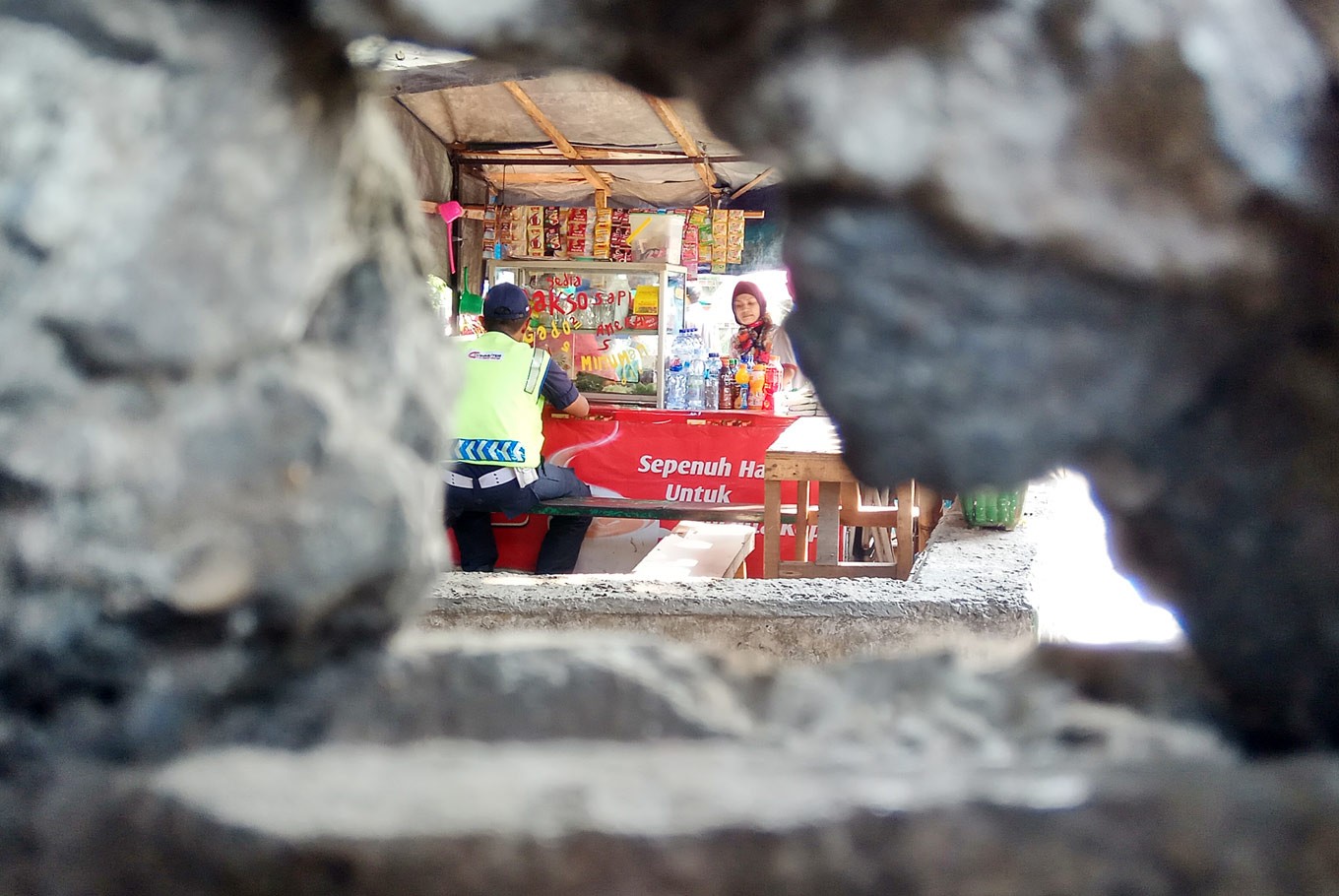Popular Reads
Top Results
Can't find what you're looking for?
View all search resultsPopular Reads
Top Results
Can't find what you're looking for?
View all search resultsStreet vendors: When love, hate collide
Change text size
Gift Premium Articles
to Anyone
J
akartans have long had a love-hate relationship with street vendors, who encroach on sidewalks and streets but at the same time, provide delicious and affordable meals.
Since taking office in October last year, Jakarta Governor Anies Baswedan has relaxed city regulations on public order that prohibit sellers from occupying streets and sidewalks without a permit.
His stance received a warm welcome from street vendors in certain areas of the capital who can now freely run their business without fear of Jakarta Public Order Agency (Satpol PP) officers.
Pedestrians, however, have criticized Anies, arguing that many Jakarta sidewalks were now too crowded to use.
For example, the city administration has allowed dozens of street vendors to set up their business along Jl. Denpasar Raya in Kuningan, South Jakarta, behind the Immigration Directorate General office, leaving no space for pedestrians. At midday, office employees in the area usually storm the street vendors to buy lunch.
Taufan Yudha, a 27-year-old contract employee of the Law and Human Rights Ministry, is a loyal customer of street vendors. On Tuesday afternoon, he enjoyed a bowl of hot soto (traditional soup) at a food stall located firmly on the sidewalk. He said the food there was cheaper than what was offered at his office’s canteen.
“I spend Rp 15,000 [US$1] on lunch from street vendors. The cheapest meal in my office canteen is around Rp 25,000,” he said.
His colleague, Restu Deshoma, said he only spent Rp 17,000 on nasi Padang (steamed rice with side dishes from West Sumatra) from a roadside food stall.
Both Taufan and Restu said they hoped the city administration could help the vendors maintain cleanliness in the area by providing more trash cans.
Despite the advantages enjoyed by office workers, Pedestrian Coalition head Alfred Sitorus said the Cooperatives, Micro, Small and Medium Enterprises and Trade Agency could face lawsuits for allowing vendors to take over streets and sidewalks.
Citing the prevailing Traffic Law, he said pedestrians had the right to walk safely on sidewalks, so the administration should not accommodate hawkers.
Cooperatives, Micro, Small and Medium Enterprises and Trade Agency head Adi Ariantara said street vendors were in high demand because of the affordable food they sold. Not all employees in Kuningan, for instance, can afford to eat at restaurants every day.
“We will communicate with the Bina Marga [road] agency soon to accommodate the interest of pedestrians, as well as workers in search of affordable food.”
Adi added that Gubernatorial Regulation No. 2/2018 on markets required new malls to provide space for street vendors. The agency was still waiting for the issuance of a technical guide to implement the regulation, he said.
According to research on the Karet area of South Jakarta conducted by a group of young volunteers calling themselves Rame Rame Jakarta (RRJ), meals offered by roadside food stalls cost an average of Rp 13,000.
A meal at a restaurant, meanwhile, could cost up to Rp 90,000.
Workers can save up to Rp 18.5 million per year by buying from vendors, RRJ said.
RRJ cofounder Chris Kelly said the strategy was innovative, focusing on flexibility, efficiency and a connection to the local area.
“This is the ideal business model for Jakarta. [Street vendors] are able to offer good products at low prices, exactly when and where they are needed,” he said.
Institute for the Development of Economics and Finance executive director Enny Sri Hartati said many companies pay their employees no more than the provincial minimum wage, so the latter can only afford street food. She urged the administration to encourage malls and offices to provide space for street vendors, who could also sell more hygienic dishes if they were well-managed.
“Sometimes street food is not hygienic and it can make the workers sick, which can be a disadvantage for companies. So, they may consider accommodating street vendors,” Enny said.











